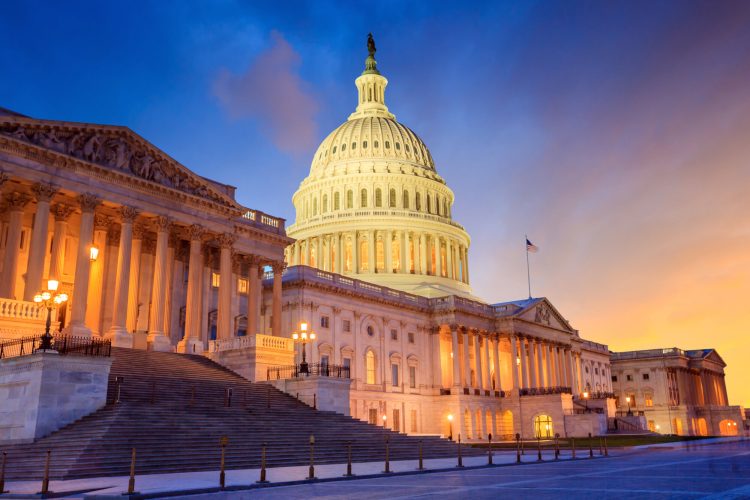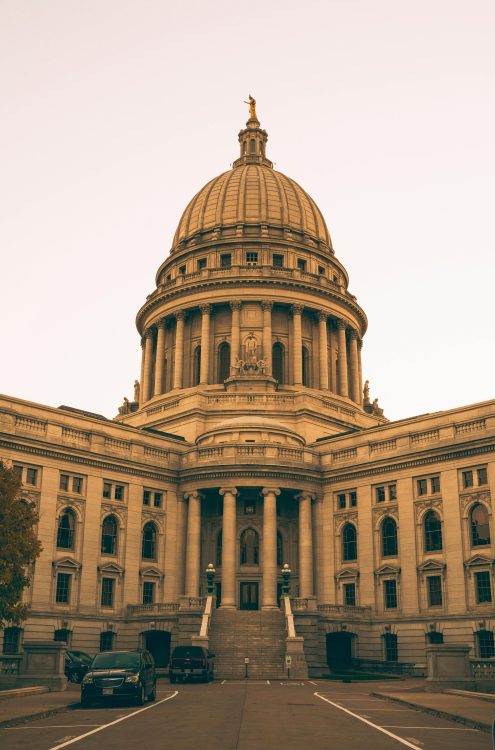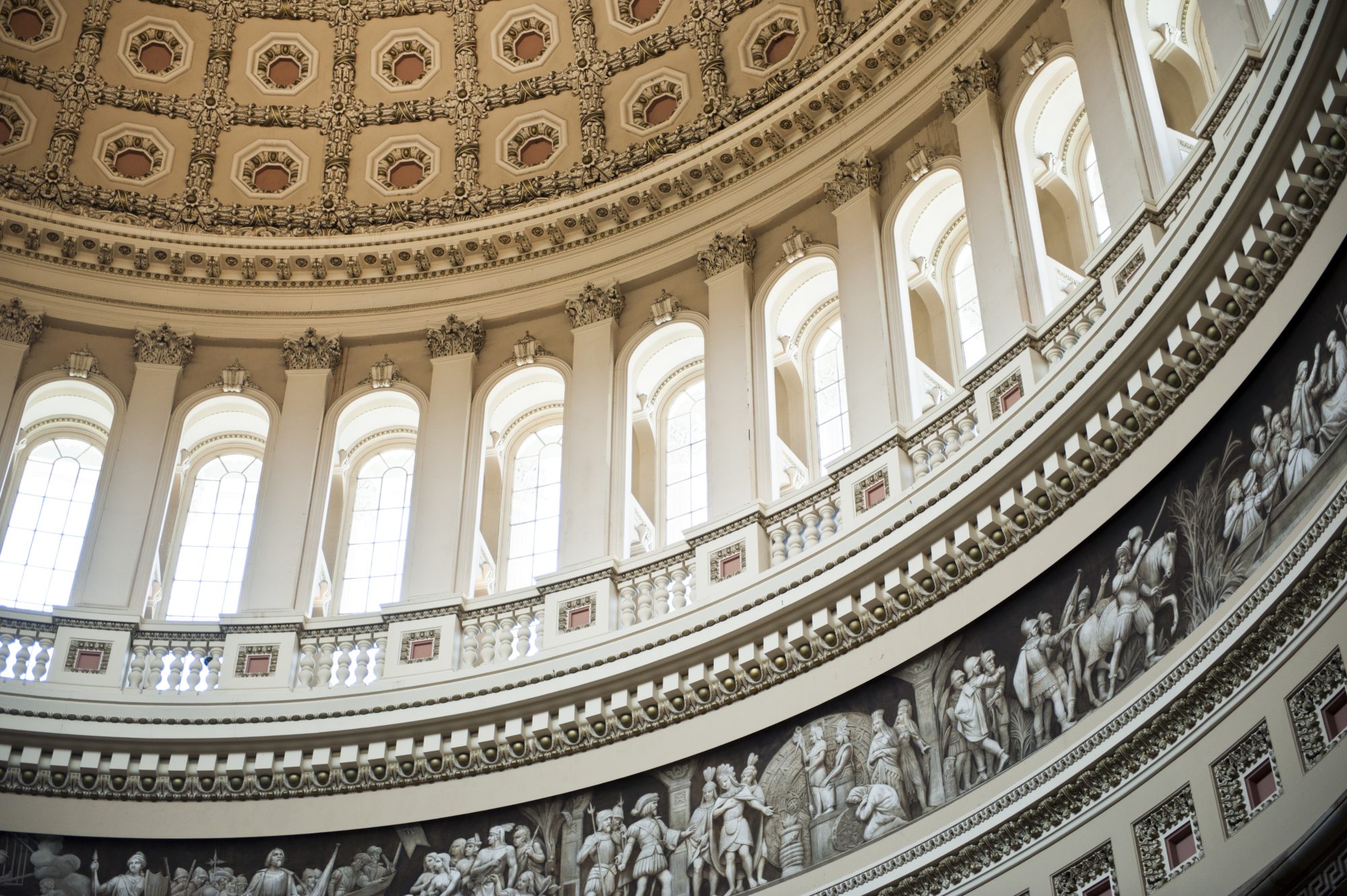This week on Facing the Future, tax expert Andrew Lautz, Associate Director for Economic Policy at the Bipartisan Policy Center, explains the tense negotiations going on in Washington as Congress tries to finish its work on the One Big Beautiful Bill Act (OBBBA) before the July 4th recess.
The House version of the bill passed by one vote after Speaker Mike Johnson (R-LA) managed to thread the needle with a number of concessions to various factions in his party. The bill has now moved on to the Senate where Majority Leader John Thune (R- SD) has to make some concessions of his own to get the bill passed in that Chamber. He can only afford to lose three members of his Republican caucus – assuming that all Democrats vote no.
The problem for Republicans is that the concessions the two leaders need to make in their own chambers might not be acceptable in the other chamber. “There are a number of major sticking points,” Lautz said “and we don’t know whether those will be resolved in 24 hours, or in 24 days, or in some longer period of time.”
He identified the sticking points as the state and local tax deduction (SALT), the phasing out of clean energy tax provisions in the 2022 Inflation Reduction Act, and changes aimed at reducing Medicaid spending.
Lautz was critical of the Senate for using a “current policy” baseline, which assumes that there is no cost to extending tax cuts enacted in the 2017 Tax Cuts and Jobs Act (TCJA) that expire at the end of this year.
He explained, “In the budget and tax world, especially when we’re trying to compare different pieces of legislation, we try to make apples to apples comparisons. But using this current policy baseline that the Senate is proposing to use is kind of like apples and bacon. It’s not even a different fruit. We’re on different planets here. There’s actually no such thing as the current policy baseline.”
“These tax cuts expire on December 31, 2025,” Lautz said. “and what Senate Republicans are proposing with the current policy baseline is to say that the roughly $4 trillion cost of extending the expiring tax cuts over 10 years actually should cost zero on paper. We’ve argued at the Bipartisan Policy Center that that’s not a proper accounting of the true costs, either for tax cuts or spending increases.”
Lautz emphasized that the fiscal and economic outlook now is very different from what it was when the TCJA was passed in 2017. “This is the first time that we have interest rates that are this high and inflation this high at a time where debt is running at 100% of our nation’s gross domestic product. What that means is that our debt load is so large that it’s very sensitive to small changes in interest rates. We’re at a point where the interest we pay on our debt is now the second largest category of Federal spending. We’re spending more interest on our debt than we are on the military, or on the Medicaid program that serves tens of millions of Americans.”
As Congress considers the OBBBA, Lautz cautioned that, “it’s incumbent on both parties to think really seriously about adding more borrowing to that ledger, because we’re at a time where that additional debt and the interest rates mean we are getting closer and closer to risking a spiraling scenario. What we worry about is that it ultimately slows the economy. It makes it harder and harder for investors to steer their dollars to private investments that help create jobs that help make the economy more productive, that help find and discover the inventions of tomorrow. Higher interest rates also flow through to mortgage rates, making it harder for people to buy and own a home. It makes it harder for businesses to borrow in order to make investments. It just has ripple effects throughout the entire economy.”
The “fundamentally different budget world” we’re in now, Lautz said, is demonstrated by the difference between the dynamic scoring of the 2017 tax cuts and the OBBBA. “The Joint Committee on Taxation estimated that the macroeconomic dynamic feedback, the positive revenue we’d get from economic growth from the 2017 tax law, was about $300 billion, close to $400 billion, which was a crude way of saying that the 2017 tax law might have paid for about 25% of itself. What we have in 2025 with this bill is the first time in my career that I’ve seen a dynamic score that actually takes things in a bad direction from a deficit impact. Normally, the dynamic score says, ‘well, you have this bill that increases the deficit, but it increases the deficit less when you account for economic growth.’ What the Congressional Budget Office and Joint Committee on Taxation are saying now is that debt and interest rates and inflation are high enough that when you account for economic feedback of these tax cuts, the deficit impact actually gets worse. And it should highlight for lawmakers that we are in a very perilous time when it comes to budget policymaking.”
Hear more on Facing the Future. Concord Coalition Senior Advisor Bob Bixby hosts the program each week on WKXL in Concord N.H., and it is also available via podcast. Join us as The Concord Coalition team discusses issues relating to national fiscal policy with budget experts, industry leaders, and elected officials. Past broadcasts are available here. You can subscribe to the podcast on Spotify, Pandora, iTunes, Google Podcasts, Stitcher, or with an RSS feed. Follow Facing the Future on Facebook, and watch videos from past episodes on The Concord Coalition YouTube channel.
Continue Reading









